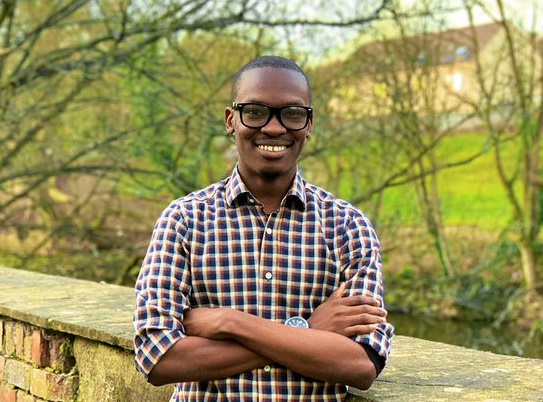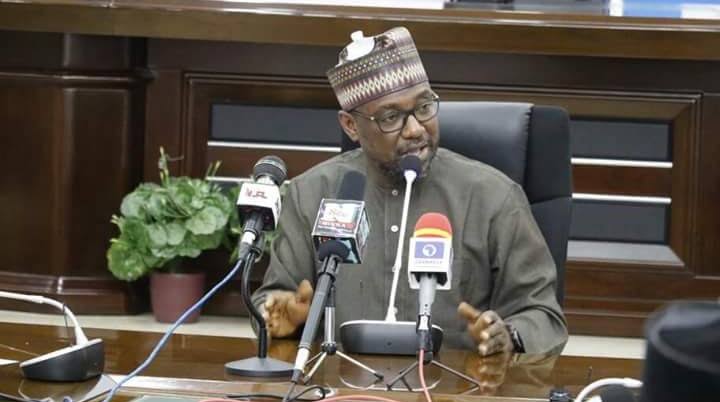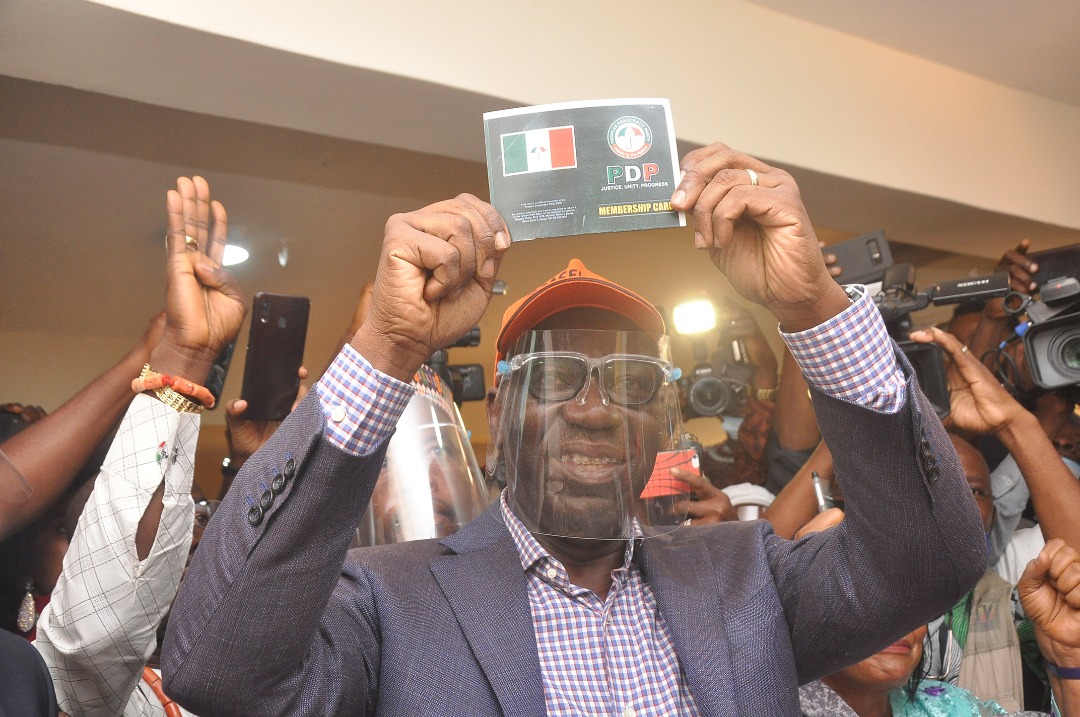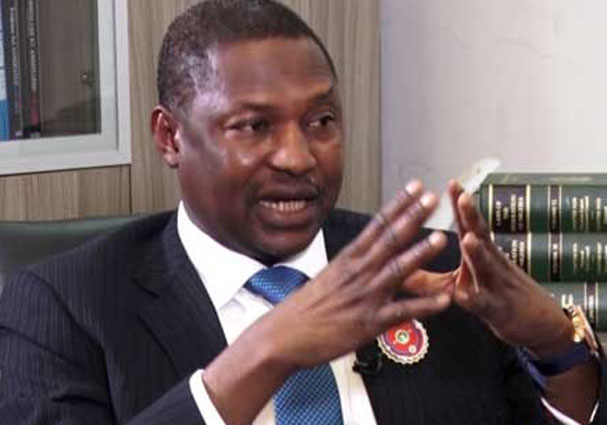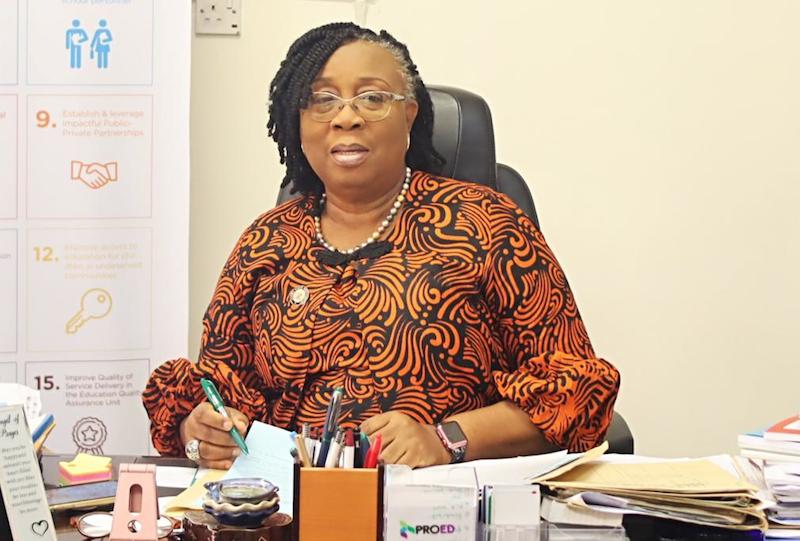BY INNOCENT ETENG
Of its 60 years of existence as an independent state, Africa’s most populous country, Nigeria, has known religious violence for nearly 40 years. That includes the emergence of the Boko Haram sect, which has killed over 30,000 people in the country’s north-eastern region since 2009.
But while several Nigerian states – mostly up north – seemed immune to this problem, until Boko Haram, the north-west’s state of Kaduna held the highest record of deaths associated with religious violence – 20,000 since the 1980s.
And stories about such destruction remain incomplete without two men being mentioned: Muhammad Nurayn Ashafa and James Movel Wuye. Both led two opposing religious groups that spread faith-based hatred and even killed and maimed each other.
But after a 1992 conflict that left them with deep personal pains, they came together for peace-building. This report details more than what the impact of their humanitarian effort has been. It digs into how their roots combined with their experiences to fan their motivation for hate and violence and how they eventually found freedom for humanitarianism.
Advertisement

AshafaBetween the 14th and 19th century, Zaria, an emirate city in Kaduna, was one of the major trade hubs in Africa to which trans-Sahara caravans traveled and exchanged articles – including clothes, shoes, and salt – for slaves with the local people. Yet, its bustling economy was not its biggest pride. Its strong defence structure against external aggression was rather most talked of.
Exemplifying this was high mud-made walls that rounded one of its most important areas, an old town that served as its administrative headquarters. It was within the confines of this walled town that, on October 1, 1959, Ashafa gave his first cry, announcing his birth.
Advertisement
But the walls served more than just a military barrier. They also protected its conservative Muslim population against religious influences. Entry into and exit from the town were tightly controlled through its eight gates.
This was because outside the fenced enclave, Zaria had three other communities dominated by people of mixed religions, especially Christians who embraced Christianity through colonialism. These areas were (and still are) Tudun Wada, Sabon Gari, and a township called government reserved area where non-Africans, including colonial administrators, lived.
So as walls-bound kids like Ashafa grew older, they were taught to preserve the values of Islam and to never allow themselves to be converted to Christianity. Ashafa is the first son of Abdul-Yakeen Ashafa, a spiritual leader within the Sufi order (Muslims’ practice of relating directly with God via prayer and meditation).
He was still under 10 when his father started preparing him for spiritual leadership. He spent most of his early years at a madrasa (a school for Quranic recitation) attached to his father’s mosque.
Advertisement
Part of his preparation for spirituality included restricting his education to Koranic schools. The older Ashafa feared that his son could be converted to Christianity if allowed to attend secular schools, most of which were owned and run by Christian missionaries.
His father, now in his late 90s, was one of many Muslims who saw missionaries as the “white man” (or his extension) who used colonial forces to disrupt the once-cherished systems that were rooted in Islam across northern Nigeria.
“Our family used to tell us the stories [that] once upon a time, [we had] a Muslim-predominated government. A Muslim setting in the northern part of Nigeria where Islam was the political system, Islam was the economic system, Islam was the basis for the judicial system, and Islam was the basis for social construct and public discourse. All were around Islam,” Ashafa said.
These stories were intended to help young kids know their common “enemy”.
Advertisement
“So the pains were transferred from generation to generation,” he said. “We were taught not to trust the white man, nor anyone who has faith in the white man’s religion because of the evil of colonisation.”
This narrative birthed Ashafa’s early passion: “To work to revive my tradition,” a dream he first started fulfilling nonviolently as a kid by selling Islamic books and other materials on the streets of Kaduna, and often teaching his peers the values of Islam.
Advertisement
However, his father’s no-secular-school rule was broken when Ashafa clocked 16. His father was convinced by his friend, Amao Sanni, a Muslim-turned-Christian.
“There is a way he related with my dad. With all this passion my dad had, he was able to tolerate him,” he said.
Advertisement
“He told my dad, ‘If your God can defend him, let him go there (secular school) and let’s see.’”
Abdul-Yakeen Ashafa took the challenge, permitting his son to travel for the first time and meet his extended family in south-west Nigeria’s Oyo state where he attended primary and secondary schools owned by the Methodist Church.
Advertisement
At the missionaries-run schools where Christian Religious Knowledge was the only faith-related (and compulsory) subject taught, Ashafa’s Bible knowledge grew rapidly. “I could memorise almost 70 percent of the Bible in my brain,” he claims.
This knowledge fuelled his hunger for comparative religion. So when he returned to Kaduna after secondary school, he combined studying under his father’s higher cadre madrasa with shuttling between libraries, reading about Judaism, Hinduism, Buddhism, Shinto, Taoist, and African traditional systems.
In the end, unlike what his father had feared, Ashafa’s knowledge of other religions only strengthened his belief in Islam and his resolve to convert others to it. This passion later took him to Sudan-based International University of African where he did Arabic Studies for nine months.
He is now the imam of the Ashafa Central Mosque in Kaduna.
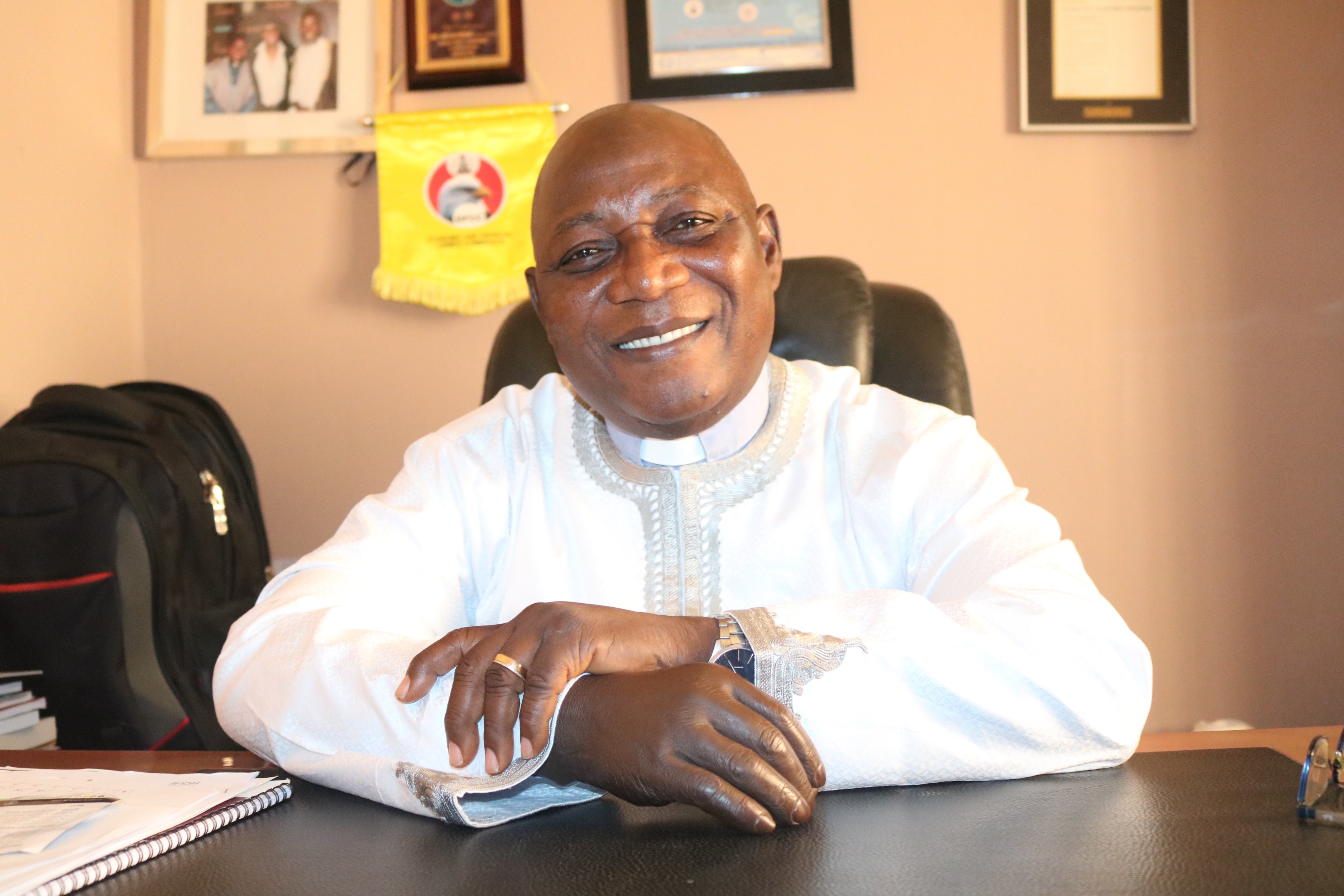
It is generally unclear why two oxymoronic Hausa (a major language spoken in northern Nigeria) words – “Tudun” for a high hill or mountain and “Wada” for a short person – are combined to name several towns in Kaduna and northern Nigeria. Well, 60-year-old Wuye was born in Tudun Wada town in Kaduna city, the state capital.
He, however, grew up with his parents in Tudun Nupawa, another town in the city. Though, as a kid, he followed his parents – who were moderate Christians – to the Baptist Church regularly, the sturdily-built pastor wanted a future that is nowhere close to spiritual leadership.
He wanted to become a soldier like his father, Wuye Movel, who fought on the side of the Nigeria Army during the country’s 1967-1970 civil war.
But that was never to be.
His movement towards spiritual leadership started at age 13 when his visits to his uncle at Kakuri, a suburb in southern Kaduna, became frequent. Almost every time he visited, he attended the Assemblies of God (AG) Church with his uncle’s family. Soon, his love for the church and the fellowship he enjoyed spiked. So he stopped attending his parents’ church and got really committed at AG.
By 1987, his allegiance to the church had landed him a responsibility as a young interpreter in his local church where he simultaneously translated live sermons from either Hausa to English or the other way round.
This skill soon sailed him to the position of assistant secretary of the Kaduna chapter of the Christian Association of Nigeria (CAN), which comprises a legion of Christian denominations across the county.
In 1989, Reinhard Bonnke, the late German-American Christian evangelist, held a crusade in Kaduna. Bonnke’s forerunners who came two weeks before his arrival needed interpreters as they visited local churches sensitising Christians.
Wuye was an easy pick attached to a German lady in Bonnke’s network. Her name was Suzanne, he recalls. One day, after they left a church they had gone to for sensitisation, Suzanne announced that she had a “divine” message for him.
“James Movel, I can see the call of God on your life. God wants to call you into full-time ministry,” he harks back her exact words.
As though it was a death sentence passed on him, Wuye blurted: “Common, Madam, the fact that I translate does not make me a full-time pastor. I don’t want that at all!”
But Suzanne was calmly insistent, claiming that as proof, God also had informed her that Wuye needed N60 (about eight dollars then) to solve a problem. She then offered him the cash gift.
Though he accepted the money and denied having any pressing need, deep down, Wuye knew his first son was in primary school and his school fee was exactly the amount – a burden he had carried for days.
“That convinced me that what she heard was the sign,” he said, “because all the time we were moving around, I never asked for a dime.”
This event inspired Wuye to start attending AG’s Northern Theological Seminary in Kaduna where he obtained a diploma in theology. He later received undergraduate and master’s degrees in theology from US-based Vision University (via its Kaduna satellite campus) and from the West Africa Christian University respectively. He became a pastor afterward.
Meanwhile, unlike Ashafa’s conservative walled town in Zaria, Tudun Nupawa where Wuye grew up was a liberal community with a friendly Muslims-Christians relationship.
For example, Wuye, a football lover, recalled: “My best friend was called Muhammad (a Muslim). I would accompany my friends when they go to the madrasa. I sit with them and wait so that at the end of the day, we could go out and play soccer. On Sundays, when we go to church, they also came and hung around so that at the end of Sunday school, we all ran out to play soccer.”
BUT WHAT REALLY CHANGED?
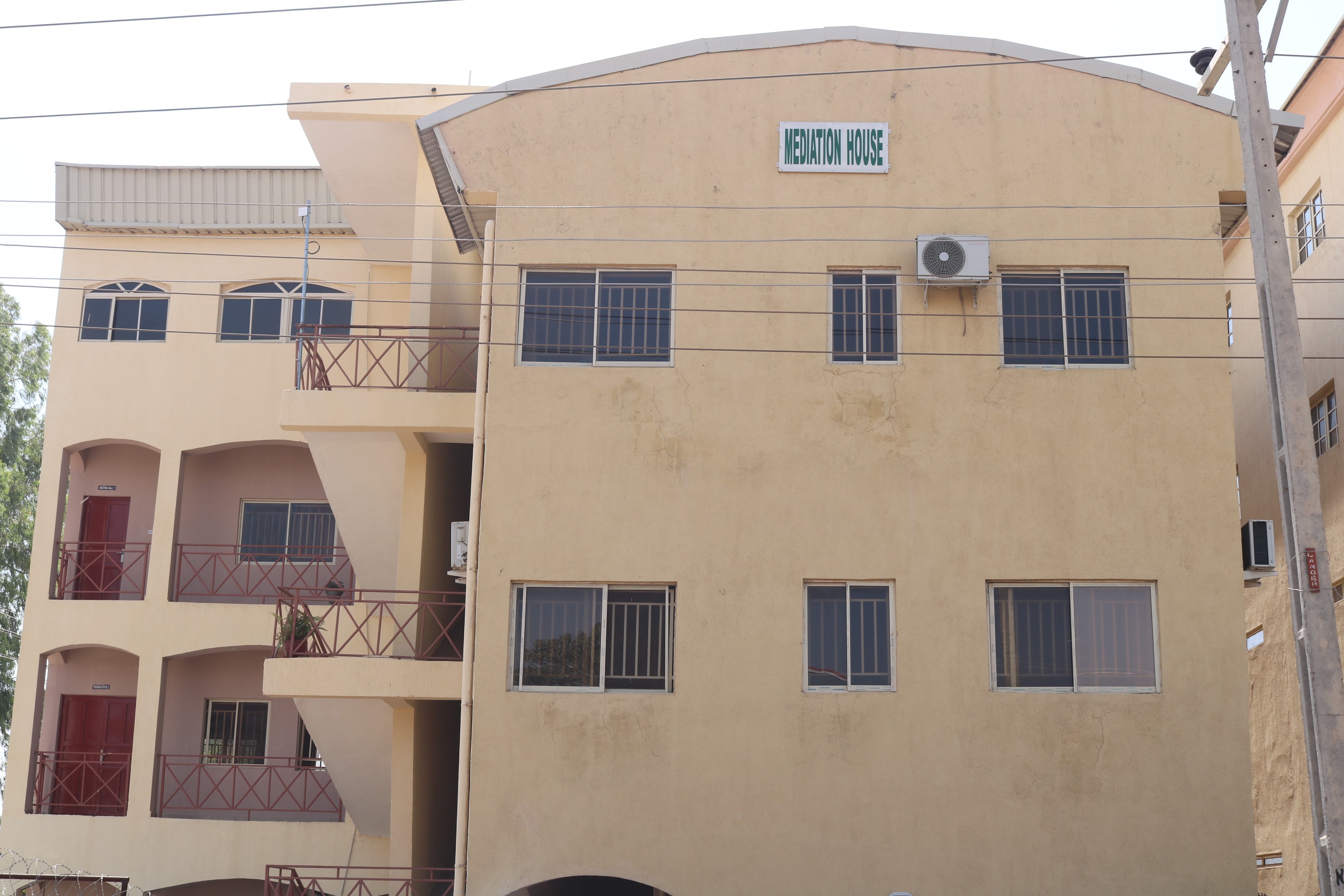
Nigeria is evenly divided between Muslims mainly in the north and Christians in the south. This divide naturally makes most northern Nigeria states to be Muslim-dominated. But 8.9 million-populated Kaduna, sometimes referred to as the capital of northern Nigeria, proves a special case with its near 50-50 Christian-Muslim population.
From mid 1980s, several factors reinforced each other and began pushing these groups to extreme positions.
Ashafa said the Iranian Revolution of 1979 inspired some religious teachers to dig up old sentiments about how northern Nigeria needed to be reformed back to its pure Islamic roots.
“Some of them (religious leaders in Islam) motivated us to action, including me. They quote scripture out of context to justify violence,” he said.
Some Christian leaders and churches later responded with their own messages of exclusion and hatred for the Muslims.
The second factor was politicians giving appointments and social benefits based on religious considerations. This political attitude resulted in the native-settler question as a third factor. Most Christian communities in Kaduna claimed to be aborigines, marking their Muslim counterparts as settlers who stole their economic and political opportunities.
By 1987, this rift had created a ready space for violence, leading to a bloody state-wide conflict that killed 1,295 people. It arose from an argument among Muslim and Christian students at a college in Kafanchan town (Southern Kaduna) about whether or not a Christian preacher misquoted a verse of the Quran.
This was the first major religious crisis in Kaduna, and given the heavy casualties both groups suffered, each left with the feeling that had it prepared for the fight, it would have suffered less. The most sensible thing to do was to prepare for any possible crisis in the future, the groups felt. That included forming special militias.
For example, CAN had a youth wing – the Youth Christian Association of Nigeria (YCAN) – with Wuye as the secretary in Kaduna. From Kaduna YCAN, a militia was formed under Wuye’s leadership to fight and protect churches and Christians during religious crises in the state.
The other extreme has the National Council of Muslim Youths Organisation (NACOMYO), which was founded in 1987 to protect Muslims’ interests. Ashafa was the executive secretary of NACOMYO in Kaduna where a “Defence League”, still under his leadership, was set up as NACOMYO’s arm to fight Christians and protect Muslims.
In 1992, the Christian community in Zango Kataf (a Christian-majority town in southern Kaduna) demanded that a Muslim-dominated market in the town be relocated to a spacious site so they (Christians) can have more stalls. This triggered a fight that became state-wide; Christians – under Wuye’s leadership – against Muslims and Muslims – led by Ashafa – against Christians.
In the end, over 2,000 people died. And neither Wuye nor Ashafa came out without deep personal injuries and losses. Wuye’s group killed Ashafa’s spiritual teacher, Ahmed Tijani, and two cousins. Ashafa’s boys chopped off Wuye’s right hand.
BUMPY ROAD TO PEACE
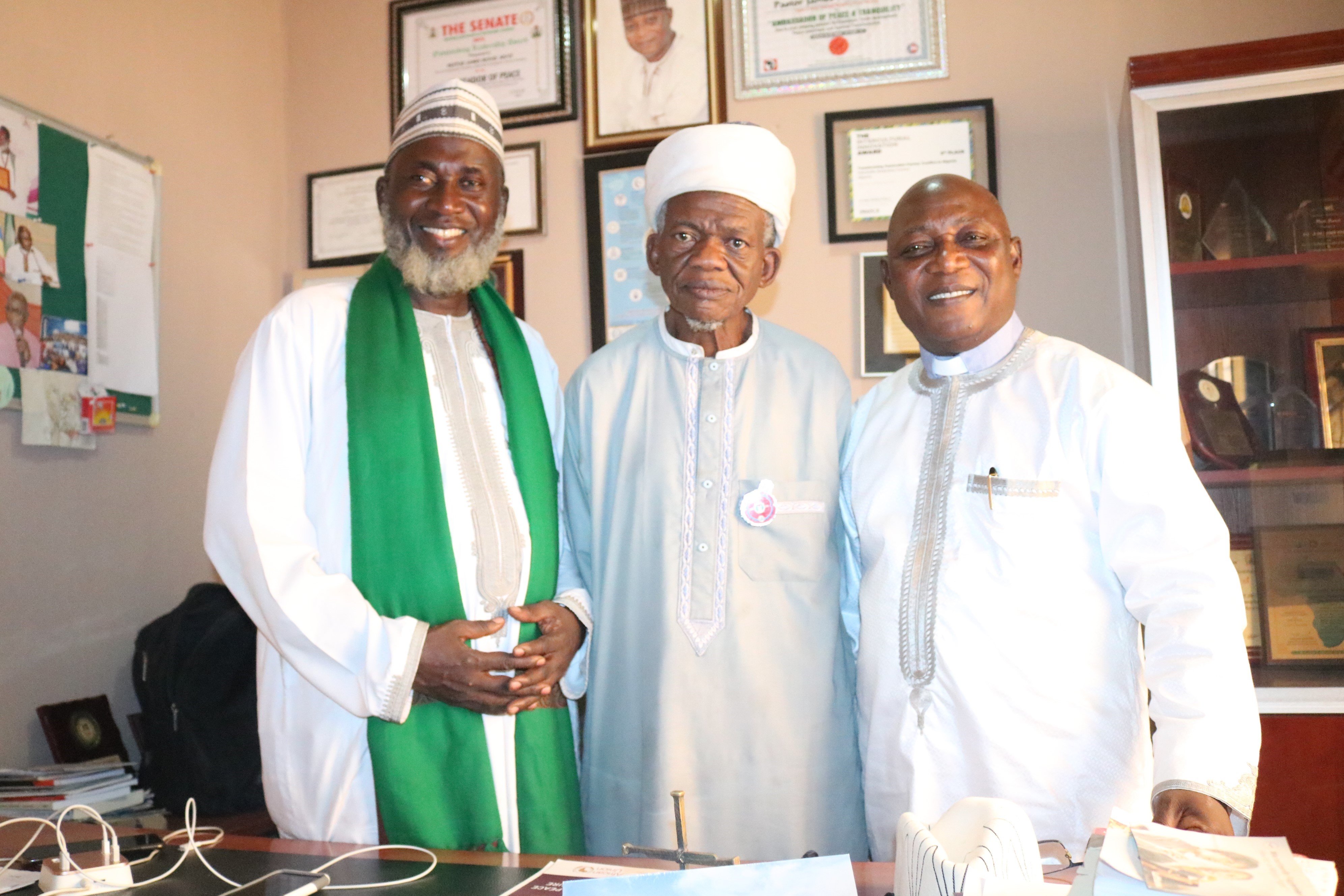
For many months, each man sought a chance to kill the other in revenge. But they never met until 1995.
That year, UNICEF partnered with the state government and started immunising children against poliomyelitis. But some rural families refused to participate, interpreting the exercise to mean sterilisation of their children. Government’s response was to invite opinion leaders to the government house to discuss ways to correct the misinterpretation. Wuye and Ashafa were among those invited to represent the Muslim Council and CAN respectively.
Also in attendance was one Idris Musa, a 70-year-old Muslim who was working as a technical officer at the Kaduna State Broadcasting Corporation and who was also representing Jama’atu Nasri Islam, the umbrella organisation for several Islamic groups in Nigeria. Musa had known the pair for years and their deep-seated hatred. Yet, some strange guts told him he could broker peace between them.
During a tea break at the government house, Musa grabbed each man’s hand, joined them together and walked away almost immediately, leaving them with the words: “Look, two of you, I want you to talk. I know you can keep this state in peace if you want to. Please talk!”
Though both men walked away after merely exchanging “hi” with hearts too skeptical to trust, too bruised to forgive, and too proud to accept dialogue immediately, that hand-joining marked the first suggestion that they could bury their pains and build bridges.
Several weeks after, on a certain day, Ashafa was at a mosque to pray. Coincidentally, the message he heard the ministering imam preach seemed tailored for him.
In order to enter paradise (heaven), Ashafa’s longing, “We have to give unconditional forgiveness to those who persecute us, to those who humiliate us, and to those who have hurt us. We have to find a way to forgive them,” Ashafa said, quoting the imam.
Those words pricked him hard and healed his revenge instincts. As he visited Wuye the next day, he was all out for dialogue and peace. From their first successful dialogue meeting at Musa’s office, another reconciliatory meeting at the British Council in Kaduna went peacefully. During the meeting, they both agreed to work for peace.
Yet, the road to peace was still far because covertly, Wuye was not committed to the peace process. He secretly nursed revenge until 1998, especially as his stunted hand kept reminding him that his supposed partner in peace building was indirectly responsible for his physical disability.
That year, the 700 Club was organising an evangelical programme in Abuja. Of course, the aim was to win people to Christianity, and Wuye was employed to coordinate all communication and reporting during the event.
When he arrived Abuja to receive further instructions from the club’s country coordinator, one Ina Omakwu,n a pastor, suspected that something was not right about Wuye’s attitude towards Muslims.
“He said to me, ‘James, you cannot preach Jesus Christ with the kind of hate you have for the Muslims. You’ve to love them as Christ loves you’.”
And that changed everything.
“I came back that day anxious to meet Ashafa, to express to him my new-found freedom, my new-found love. I came with that happiness and that was my real turning point,” he admits.
Like free birds, they then proceeded to the Selly Oak College in the UK where they took a three-month course in conflict resolution and peace-building. Returning home, they started the Muslim-Christian Youth Dialogue Forum, a peace-building nonprofit they later renamed Interfaith Mediation Center (IMC).
With support from local and international organisations – including from the United States Institute of Peace (USIP), Christian Aid, Islamic Relief UK, British High Commission, and UNDP – they now organise physical events, and radio and television programmes through which they teach Nigerian youths about the virtues of religious tolerance and peaceful co-existence.
Through a strategy that divides their mediation process into four parts (shuttle mediation, where the root causes/instigators of conflict are discovered; intra-mediation, where Ashafa meets the Muslims to discuss their grievances and Wuye does same with the Christians; intermediation, where both groups are brought together to dialogue; and peace declaration, where the groups commit to live in peace and to use dialogue to settle future disputes), they have been able to build peace among religiously-divided groups in several Nigeria states, including in; Plateau, Bornu, Taraba, Benue and Kaduna.
In Kaduna and Plateau states, they worked with the state governments to achieve the Kaduna State Peace Declaration (2002) and the Yelwa-Shendam Peace Affirmation (2005) that saw Muslim and Christian leaders commit to promote religious tolerance and peaceful co-existence.
Across 42 universities and colleges in Nigeria, the IMC, with about 40 staff and volunteers has also established “peace clubs” with over 10,000 members. Members meet regularly to discuss issues around religious tolerance, love, forgiveness and the advantage of co-existing peacefully.
In recognition of their effort, twice, they were nominated for the Nobel Peace Prize. The Peacemaker in Action Award (2000), the Bremen Peace Award (2005), the Prize for Conflict Prevention (2009) and the Duetsche Africa-Preis (2013) are among several awards they have received.
Yet, their humanitarian effort has not been without challenges, personal sacrifices and great risk. Ashafa recalls how, twice, youths within his religious circle attempted to assassinate him due to their belief that he has compromised Islamic values by working with Christians.
For Wuye, at some point, he doubted if he was doing the right thing because: “Some of my colleagues, the pastors, they would say, ‘let’s check him. Is he still a Christian? The way he is expressing his love for the Muslims (and) empathising with them, does he still take the Holy Communion?’”
Despite these challenges, they say they have managed to sustain their passion by holding to peace and love-supporting verses from the Bible and the Quran, and by praying regularly.
Now, they bond so strongly that Ashafa’s vision “is to see the Pastor and the Imam in every household.” And Wuye likens their relations to that of an inseparable couple in a marriage: “Till death do us part!”
This piece was produced with the support of the USC Center for Religion and Civic Culture, the John Templeton Foundation and Templeton Religion Trust. Opinions expressed do not necessarily reflect the views of these organisations.
Add a comment
